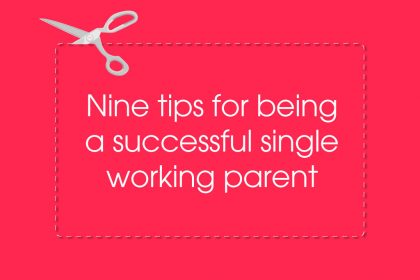Splitting up? The four ways you can agree arrangements for your children
Are you in the process of splitting up? Or struggling to come up with a mutually acceptable custody plan with your ex-partner? Read the four ways you can agree arrangements for your children.
If you are in the process of splitting up, agreeing arrangements about your children that work for everyone may well seem impossible. When you are feeling hurt and angry, it can be very hard to imagine a future that feels OK.
And while it may not come right overnight, if you and your partner both remain focused on what’s most important to you both – your children – you will get there.
Before we look at the four different ways of coming to an agreement about childcare arrangements, here are some golden rules to underpin the whole process, developed during many years gathering the best advice from a range of experts.
You will both need to compromise – and put your children first
Be clear that you are making the decision based on what is right for your children at this point in their lives, rather than trying to make things fair between the two of you. Be aware that if you are thinking that it is only ‘fair’ if your children live half of the week with each of you, you may accidentally be putting your needs ahead of theirs.
Arrangements where the children live part of the week with one of you and the rest of the week with the other seem to be most successful where parents live near each other, both have enough space at home and time (or money) to spend on childcare, and when they can be co-operative and communicate well on day-to-day issues.
For other families, it may be best for the children to live with one parent most or all of the time, and see their other parent regularly and reliably.
Think about:
- How much stability your children need at their age and with their personalities.
- Who will have the most time for parenting, and on what days.
- Where there is enough space.
- How they would get to and from school, their friends’ houses, etc.
- If you have more than one child, whether it’s important to them that they both do the same thing (for example, both go to stay with Dad on a Sunday night), or would they enjoy the opportunity to get one of you to themselves sometimes.
Bear in mind that any arrangement you make is to some extent temporary. You will probably need to renegotiate a number of times as the children get older, change schools and gain social lives of their own, or when the adults change jobs, move homes, or enter new relationships.
Four ways to agree arrangements for your children when you split up
There are four ways to come to agreements. Which will work for you and your children’s other parent will depend on your relationship and your financial situation. However you do it, you will both need to compromise.
Option one – agreeing it yourselves
This is the cheapest and arguably quickest option, but undeniably tricky. You will need to find ways to discuss this without your emotions getting in the way.
- Agree in advance with the other parent how and when you will try to come to agreements. Don’t just bring it up and hope to discuss it there and then. Nobody likes to feel ambushed and you have a much better chance of agreeing something if you both feel you have chosen this approach and you want it to succeed.
- Before you meet, think about what you want to agree, always bearing in mind what is best for the children. Then work out what you would like and where you can be flexible. If you know what the other parent might feel about that, think if there’s anything you can do to make it more appealing for them.
- Try and agree what is urgent and deal with that first. You may have different priorities, but dealing first with the things that are most worrying for each of you can make things go much more smoothly.
- Try to stick to the point as much as you can. Crucially, remember that you are talking about what will happen in the future. You will not make much progress if you bring up each other’s past failings.
- If you are meeting in person, having the main points written down on a piece of paper can be helpful and give you something to focus on if you feel yourself starting to get upset or angry, or if either of you stray from what you need to discuss.
- If you try to make arrangements over email, do bear in mind that it is even easier to take offence when you can’t see expressions or hear tone of voice, so keeping yourself calm and sticking to the point is even more important.
Option two – using family mediation
This is where you and the other parent meet with a mediator, who has been properly trained to help you put your feelings aside and focus on the issues that need to be sorted out. The mediator won’t take sides or decide what is fair for you – they are simply there to help your discussions.
Many people say that a positive side effect of mediation is that it helps them to communicate again, which – given that you are going to continue to be your children’s parents forever – can only be a really good thing.
Most people have to pay for family mediation, but if you are entitled to legal aid it is free. For more details of how mediation works, what it costs, and how to find a good one, see our free Survival guide to using Family Mediation after a break up.
Option three – using solicitors to negotiate for you
Your other option is to use a solicitor to negotiate on your behalf. This is likely to be quite a bit more expensive than mediation, but – particularly if there has been an imbalance of power between you – it can feel a lot safer to have someone on your side, making your case for you.
Forget everything you have seen on American TV dramas. Your solicitor won’t try to take your ex for everything they can and ensure they hate you until the end of their days. You can find a good family solicitor who believes in a constructive approach on Resolution’s website. Don’t be afraid to phone around and compare prices.
Option four – going to court
Let’s be clear, going to court is a last resort. It can often cause relationships to deteriorate further, making it harder to function as parents afterwards, and leaving everyone involved hurt, stressed, and poorer (even if you do it without the help of a solicitor).
Sometimes people think they want to go to court for the wrong reasons. Maybe they don’t want to compromise and think the court will give them everything they want. But this is very unlikely – courts don’t side with one person but try to find a solution that everyone can work with. Often, deep down, people hope the court will ‘reward’ them or ‘punish’ the other parent for their past behaviour. If this is what you want, you will be disappointed.
Sometimes parents want to take their dispute to court because they think fighting every step of the way will show the children how much they love them. But going to court really isn’t the best way of doing that. Making compromises to ensure the new situation will give the children what they need, even where that is painful for you, is much more likely to be effective.
There are only really five reasons to go to court about childcare arrangements. They are:
- If you have real worries about your child’s safety or welfare with the other parent.
- If one of you feels unsafe or intimidated.
- If one of you has been preventing the other parent from seeing the child.
- Maybe you haven’t been able to get a suitable response from your partner. Sometimes a court application can help to get a discussion going. Often the court process will stop after the first appointment, as an agreement can be reached.
- The parent with care of the children has moved and cannot be located. The court can assist in finding and then contacting the other parent if they are within England & Wales.
If you are in one these situations, see How to apply for a court order about the arrangements for your children without the help of a lawyer. It explains the whole process from start to finish and enables you to spend less on solicitors’ fees. The standard version of the guide is free, or there is an even more helpful extended version available for a small fee.
If your situation isn’t this bad, it is probably best to consider trying again – perhaps using another method like family mediation or solicitors to negotiate on your behalf.
For more advice on how to come to arrangements about your children or how to deal with common problems as a co-parent see the free Survival guide to Sorting out arrangements for your children.
Advicenow is an independent, not-for-profit website best known for its user-friendly guides that provide practical help on how to manage and resolve life’s legal problems, including divorce and separation.










